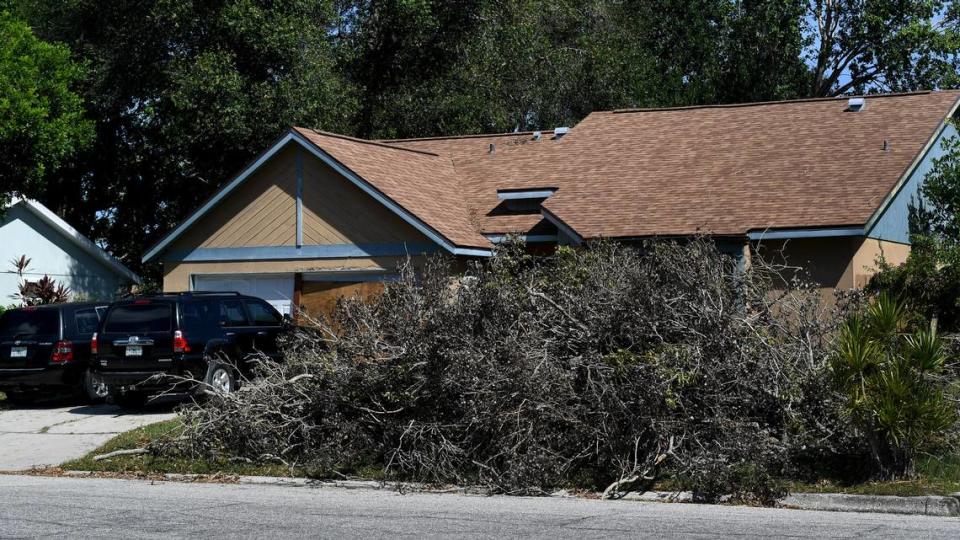You may need help fixing damage from Hurricane Ian. Here’s how to avoid being scammed
So, Hurricane Ian brought Category 4 winds to Southwest Florida and left a fallen tree in your yard, broke windows, or left your roof a leaky mess.
What do you do? The job might be bigger than you want to tackle.
Aside from making safety your first priority, you might want to shop around for a professional contractor.
But beware, there is another potential problem: scammers. Natural disasters like Ian seem to attract them.
It’s not unusual for unlicensed, uninsured or unregistered people to come knocking after a storm.
Bradenton Mayor Gene Brown says it is a problem and offers some advice.
“Our planning department has waived some permitting fees for roofs and things like that. If you have a home situation, please reach out to us in the city. We’ll get you to the right person. We definitely want qualified people to fix the roof of your house and help you. We want to make sure there are no scammers,” Brown said.
“If you have any issues in the city, just call us and we’ll direct you to the right people,” Brown said.
In unincorporated Manatee County – areas outside of Bradenton, Palmetto and the island cities – queries can be directed to the 311 line.
Heidi Copeland, University of Florida/IFAS Extension agent in Leon County, says the best defense against scammers is to be cautious when approached by those who offer help. Copeland offers answers to these questions:
Q. What are red flags that may indicate an offer of assistance is fraudulent?
A. If it sounds too good to be true, it usually is. Anyone requesting full payment up front or payment in cash should be more closely considered. Do not send full payments up front or pay in cash. Know who you are working with, and if you do not, research them. Ask for their license and insurance details, and then verify that information.
Q. How can people gauge the legitimacy of an organization offering assistance?
A. Look up businesses at the Florida Department of State’s sunbiz.org website, and verify licenses at the Florida Department of Business and Professional Regulation’s myfloridalicense.com.
Depending on the work a company performs, the Florida Department of Agriculture and Consumer Services may be the place to search for their license. For instance, if you need someone to move your furniture, FDACS would have the information; if you need a contractor, search DBPR.
Lastly, if possible, have an attorney review any contracts before you sign.
Q. What are some known resources people can reach out to for assistance?
A. Your first step should be to report any and all damage to your insurance company. The Red Cross, as well as local organizations — churches, schools, food banks, etc. — also are great for accessing recovery resources. Calling 2-1-1 can connect you to local information.
Q. If someone is the victim of a scam, what should they do?
A. Be proactive and don’t allow yourself to become a victim of a scam. For any assistance you accept or workers you hire, be sure to keep records as best you can, including reviewing and signing a contract ahead of any work to be performed.
If you suspect you’ve been scammed, follow the advice of the Federal Trade Commission, and if warranted, report the incident to the agency. However, you must accept that nothing may come of reporting.
Prior to a storm, people are asked to be self-sufficient for a minimum of three days. Help will come, but unfortunately, it does take time; in the meantime, all a person can do is research to identify the legitimate help versus those preying on vulnerable people.
Manatee Recovers
For more information about post-storm cleanup, visit the Manatee County Recovers from Ian web page.


